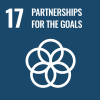Continued slow global economic growth is likely to leave about 6.5 per cent of the world population extremely poor in 2030 without national actions supported by international cooperation, according to a new report issued by the United Nations today.
A continuation of the status quo would severely hamper efforts to achieve the Sustainable Development Goals by 2030. The Goals call for eliminating poverty by 2030.
According to the 2017 “Financing for Development: Progress and Prospects” report, under current trends, least developed countries (LDCs) are likely to fall short by large margins.
Projections indicating that global gross product will grow at less than 3 percent over the next two years, and with slow growth in international trade—it grew at less than 2 per cent per year in value terms 2011 to 2014, before declining by 10 per cent in 2015—prospects for the poorest remain challenging.
United Nations Secretary-General António Guterres called on countries to take swift action: “Despite the huge strides in the fight against poverty, made possible by globalization and technological progress, inequality has increased markedly around the world. Conflicts are proliferating and other megatrends such as climate change, food security and water scarcity, are putting the progress of the last few decades at risk.”
The report, which is led by the United Nations Department of Economic and Social Affairs, tracks progress on the Addis Ababa Action Agenda, and draws on the expertise, analysis and data from over 50 international institutions that make up the Inter-agency Task Force on Financing for Development, including the World Bank Group, the International Monetary Fund and the World Trade Organization, UNCTAD and UNDP. The Addis Agenda, adopted at the Third International Conference on Financing for Development in July 2015, provides a global framework to support the implementation of the SDGs by ensuring the effective mobilization of resources at the national and international level.
The report contends that many of the challenges that countries face–including slow economic growth, climate change and humanitarian crises–have cross-border or even global repercussions, and cannot be addressed by any one actor alone. It states that a steadfast commitment to multilateral cooperation for sustainable development should support national efforts.
The Addis Agenda points to an infrastructure gap of $1 trillion to $1.5 trillion annually in developing countries, while estimates of the global gap generally range from $3 trillion to $5 trillion annually.
To close these and other gaps, the report finds that there is an urgent need to increase long-term investments in sustainable development and to address economic vulnerability. Such investment will stimulate global growth, leading to a virtuous cycle. “Ramped-up investment in sustainable infrastructure will help stimulate sustainable and equitable global growth, and make available more resources for investment in achieving sustainable development,” said Wu Hongbo, UN Under-Secretary-General for Economic and Social Affairs.
About the Inter-agency Task Force on Financing for Development
- The Inter-agency Task Force on Financing for Development is chaired by Mr. Wu Hongbo, Under-Secretary-General for Economic and Social Affairs.
- The Financing for Development Office of the UN Department of Economic and Social Affairs serves as the coordinator and substantive editor, with the major institutional stakeholders of the Financing for Development process, the World Bank Group, IMF, WTO, UNCTAD and UNDP, also taking a central role.
- The 2017 “Progress and Prospects” report of the Inter-Agency Task Force on Financing for Development is the first joint assessment by the United Nations system, the Bretton Woods institutions, the World Trade Organisation, and other relevant international organisations of the economic situation conducted since the 2030 Agenda was adopted in 2015.
- The full list of the members of the Task Force can be found at: http://www.un.org/esa/ffd/special/inter-agency-task-force-members.html
- The Task Force’s report is the main input for the annual Economic and Social Council Forum on Financing for Development. This year’s Forum runs from 22-25 May. Further information on the Forum is available at: http://www.un.org/esa/ffd/ffdforum/
- The Task Force has also launched a new website to accompany the report, and will be reporting annually to the ECOSOC Forum on Financing for Development follow-up to track progress and make recommendations for corrective action: developmentfinance.un.org/
 Welcome to the United Nations
Welcome to the United Nations
